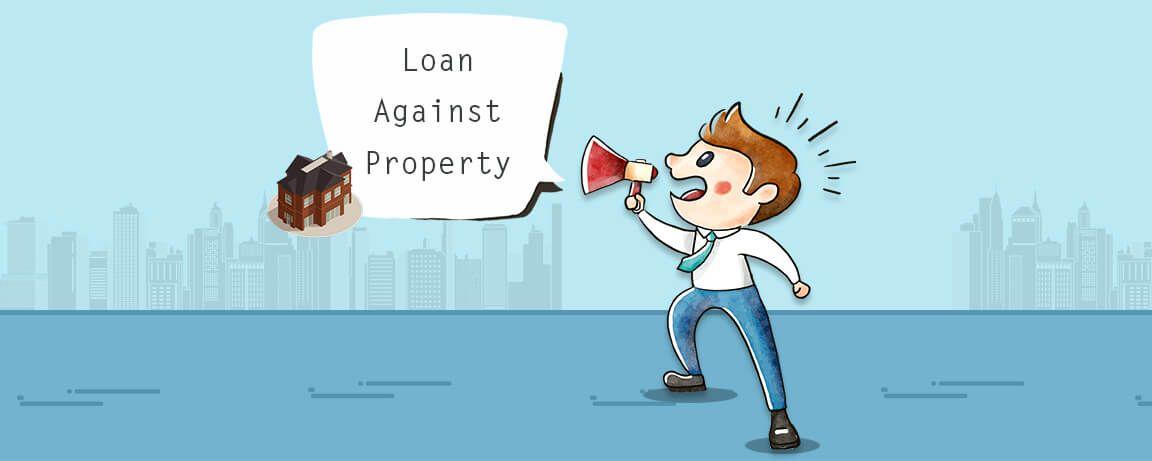7 Factors That Affect Loan Against Property Eligibility
Taking on debt is not a big deal anymore for the average Indian middle class and when it comes to buying a dream home or in some cases to fulfil the need for adequate finances during a medical emergency, banking institutions are almost always the go-to avenue to borrow funds to fulfil that cause. To opt for a Personal Loan in such scenarios can be a tricky business since the interest rates on them are quite high and could be a raw deal for some borrowers.
In such a scenario an interesting option can be leveraged that is popularly known as Loan Against Property. As the name suggests, it is a loan which is issued or disbursed by a financial institution against a property which is pre-owned by the prospective borrower. This is a reasonable bet as compared to the previously mentioned Personal Loan as the rate of interest is particularly favourable in this case. However, owning property is not the only criteria, and we have listed down seven factors that affect Loan Against Property Eligibility.
Property Eligibility:
1. Current employment status
Almost all of the banking or financial institutions will keep a tab on your present employment status and the salary or income you will be obtaining out of them on a monthly basis so as to ascertain your capability of paying the monthly equated monthly instalments (EMIs). Another criterion which can affect the credibility of the borrower is how long they have been working for their organisation as frequent job hopping can give an impression of relative instability of one’s financial situation.
2. Documentation of your leveraged property
The first order of business of any bank or other financial institution will be to check all the documents related to the property which is being leveraged by the borrower. Any discrepancies with regard to the documentation or any legal hassles could greatly reduce or almost negate your chances of getting the desired amount from the lender. The documents could include relevant permissions from the local bodies, building plans, environmental clearances, and so on.
3. Insurance of leveraged property
This can be considered as a subset of the above-mentioned factor but is nevertheless as important as any other factor. If the property in question is secured in terms of an insurance policy, it will be an added benefit to your loan application. This measure will be a trust-building exercise among the lender and the borrower as the later will have a sense of higher security against the property becoming a non-performing asset in future.
4. Credit score/ CIBIL score of the borrower
In almost all scenarios where a borrower is applying for any kind of loan, the credit score will be the defining entity for whether the loan will be approved or not. Most of the banking institutions or the lenders will have the necessary tools at their disposal to calculate your credit scores which will show how well you have been repaying your existing loans or Credit Card repayments. The same stands true in case of a loan against one’s property.
5. The regularity of income tax returns
Income tax returns could prove a vital component of your loan application process, wherein you would be asked to furnish your income tax return documents for the last three-four years which would prove that the borrower in question has a steady cash flow over a long period of time which is incomprehensible in case you try to furnish your salary slips (as they provide the income on a monthly basis). If the documents pertaining to the Returns are inadequate, it can very well result in the rejection of your loan application.
6. Tenure for the loan
Your Loan Against Property application will likely be rejected in case the tenure that you are looking for to repay the loan is comparatively short concerning your average monthly income. Always make sure that whatever tenure you are looking at is in sync with your monthly earnings and it is neither too low nor too high. Several online tools or Loan Against Property EMI Calculators, these days are available online to make sure that all of your calculations before applying for the loan are in line with what is required to get your application approved by the concerned authorities.
7. Age of the applicant
If the applicant has already retired or is approaching that age, the chances are that the loan will likely get rejected for obvious reasons. It is always advisable that in such cases you have a co-applicant on board who can be an earning member of your family or to furnish joint income proofs with them to instil confidence with the concerned lending authorities.
A Loan Against Property is one of the most comfortable and easy to avail options for any borrower, this however also means that the property which the borrower is leveraging to get that loan will be at risk in case they are unable to make timely repayments. Hence one has to be confident concerning the short and long-term implications of availing this facility.
SBI Bank Loan Against Property is a hassle-free option for a loan amount ranging from Rs. 5 Lakhs to Rs. 7.5 Crores. A prospect can avail of a loan against residential or commercial properties at attractive rates of interest.
Also Read: 9 Factors That Affect Your Eligibility for a Loan Against Property
To apply online for Credit Cards, Secured Loans and Unsecured Loans, visit www.mymoneymantra.com, the leading online lending marketplace that offers financial products from 100+ Banks and NBFCs. We have served 5 million+ happy customers since 1989.


